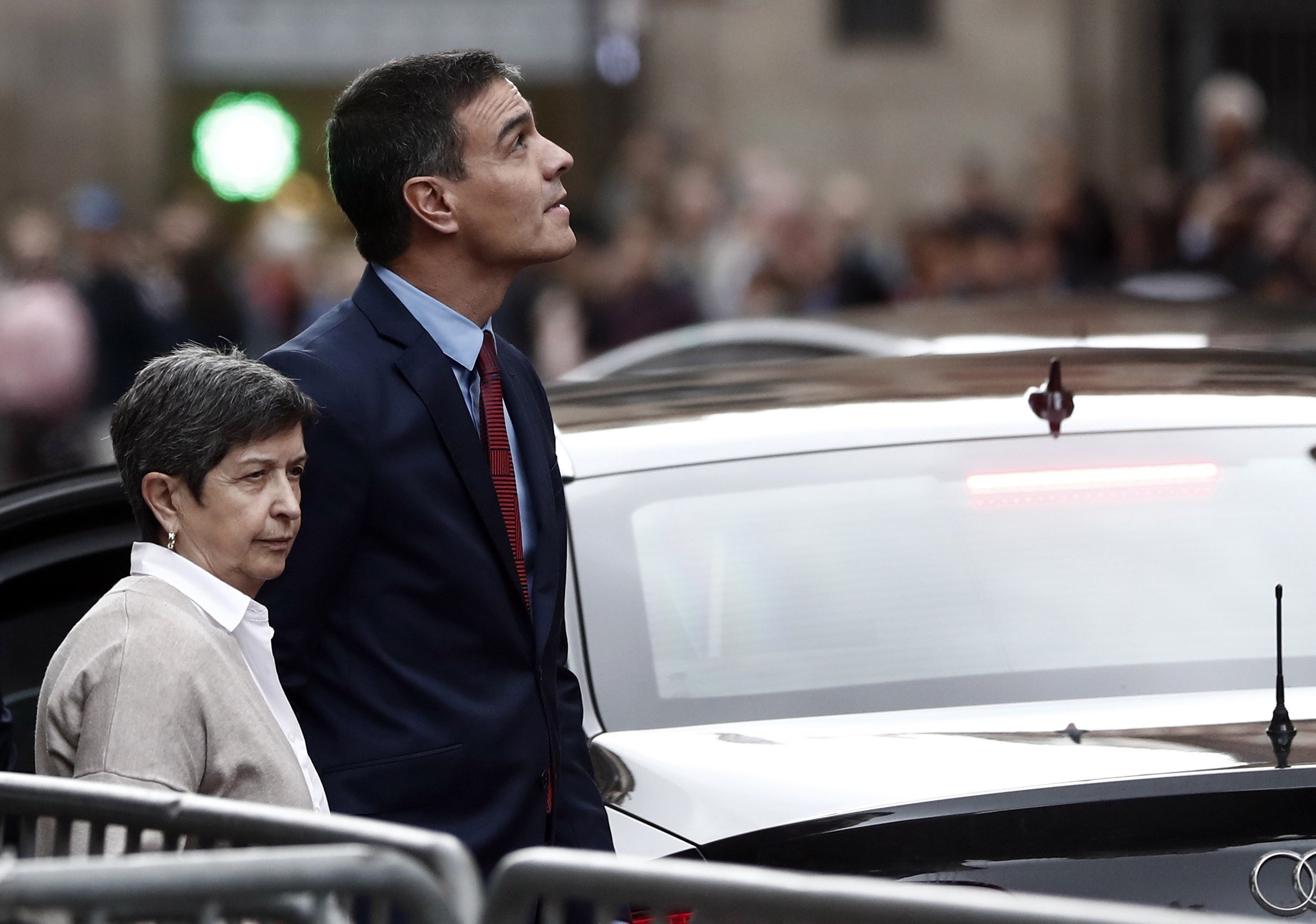The controversy surrounding recent survey results from Spain's public survey agency, the Centro de Investigaciones Sociológicas (CIS) seems to be growing. While almost all other opinion polls suggest that Pedro Sánchez's "master stroke" in repeating last April's elections is in great danger of failing, the results of the CIS huge macro-poll announced today come to the rescue of the Socialists (PSOE), awarding them a sizable increase in seats after Spain's November 10th date with the ballot box. From the current figure of 123 deputies, they will rise to 133-150 seats, and could possibly govern - in a hypothetical left-wing coalition - without help from any pro-independence parties. But there's also something else tricky about this poll: the research was carried out before the Supreme Court verdicts were announced, on 14th October - in fact, it was completed the day before. Nor will it include any direct effect from the exhumation of the dictator Francisco Franco (October 24th). On the other hand, it has to be noted that, despite the ongoing criticisms the CIS has faced since PSOE party stalwart José Félix Tezanos was appointed as head of the research agency last year, its last poll before the general election of 28th April did predict the actual results quite well.
According to the CIS poll, published this Tuesday - three days before the start of the campaign for Spain's fourth election in as many years - the clear winner will be Pedro Sánchez's PSOE, who are expected to significantly increase their parliamentary presence. If the PSOE reaches the top end of the range of predictions, they will be able to choose between partnering with one of the right-wing parties - Ciudadanos (Cs) or even the Popular Party (PP) - as their only partner in government, or else going left without having to include any of the pro-independence parties, either Catalan or Basque. This survey confirms the disastrous fall in support for Cs under Albert Rivera, and a supposed stagnation of the far-right Vox - another prediction which contradicts most other recent polls.
Thus, according to the CIS estimate, the PSOE will experience something close to a landslide on 10th November, winning 133-150 seats, an increase of between 10 and 27. The PP will remain as second-largest force, with an increase in seats won, from the current 66 to 74-81. The left-wing Unidas Podemos and its regional affiliates will move from fourth to third largest party, with 37-45 deputies. This means, in the best case, they are expected to gain three seats; and in the worst, to lose five. Behind them the CIS poll places a deflated Ciudadanos, which would plummet from the 57 deputies it has now to 27-35. The extreme-right Vox will also lose strength, falling from 24 to 14-21. The new left-wing formation Más País, led by Íñigo Errejón, is estimated to win 3-4 seats, including those of its Valencia partner Compromís (1-2).
An absolute majority in Spain's lower house, the Congress, necessary for the investiture of government in the first parliamentary ballot, stands at 176 seats. With the results predicted here, the PSOE could govern with support from just one party on the right. The sum of the PP-PSOE would be between 207 and 231 seats, and with Cs it would reach 150-185. Looking the other way, an agreement with the left-wing parties (Unidas Podemos and Más País) would yield a total of between 173 and 199 seats. At the lower end of the range of predictions, support from nationalist or pro-independence forces would be needed; at the top end, it would not. And neither is it clear that the Regionalist Party of Cantabria, the only support that Sánchez achieved in its July attempt to form a government, will again win its single seat.
The parties that will not be able to form a government under any scenario, according to the CIS, are the three parties of the right: PP, Cs and Vox. In the best case, adding the two seats expected to be won by Navarra Suma, they would obtain 139 seats; at worst, they would only reach have 117.
With regard to the Catalan pro-independence parties, the Republican Left (ERC) is expected to increase its haul by between 1 and 3 seat, going from 15 to 16-18, Together for Catalonia (JxCat) will drop from 7 to 4-6 and the far-left CUP, standing for the first time in Spanish general election, should enter with 1-2 deputies. The Basque Nationalists (PNB) could rise from 6 to 7 and the left-wing Basque party EH Bildu are expected to go from 4 to 5 seats. This fifth Bildu representative would be Bel Pozueta, mother of one of the Altsasu youths controversially convicted to long jail sentences after a fight with Civil Guard officers.
The CIS macro-poll, based on the huge total of 17,650 respondents and having a margin of error of 0.75%, was carried out between September 21st and October 13th. Thus, it does not include any political movement resulting from the verdicts in the Catalan independence trial, and with reagrd to the exhumation of Franco, the polling period only includes the Spanish government's announcement of the move but not the spectacle of the exhumation itself.

